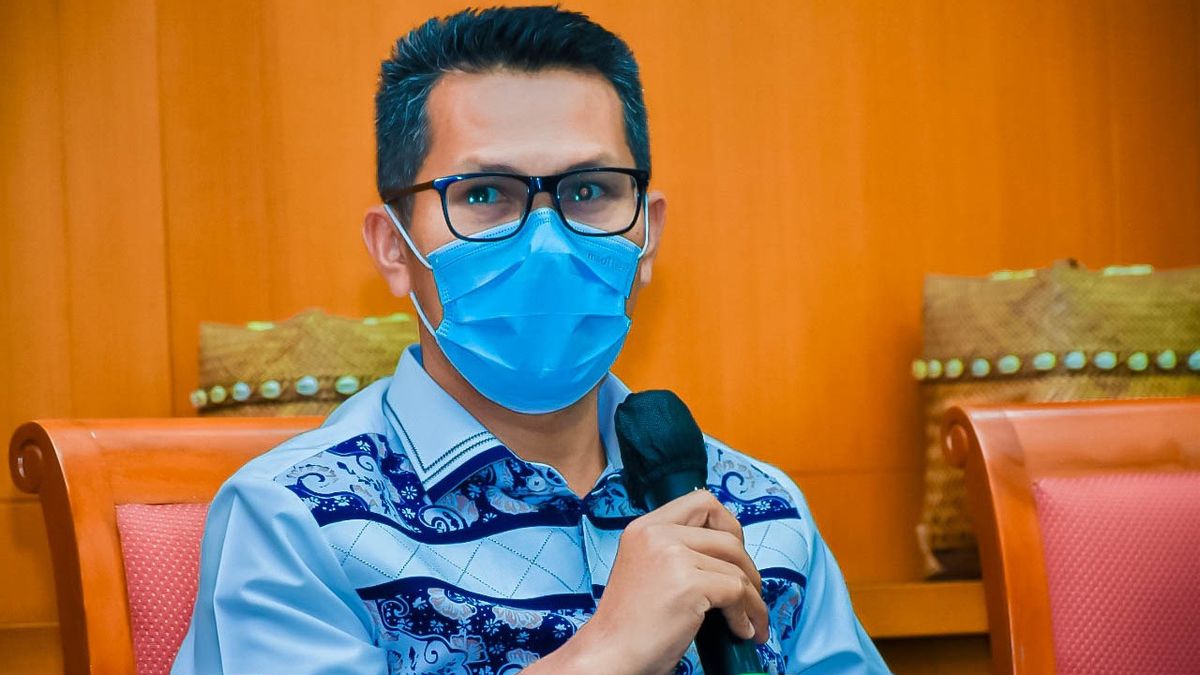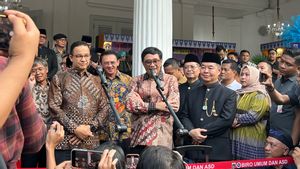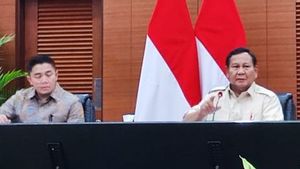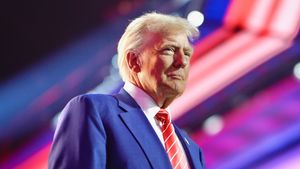JAKARTA - The Ministry of Industry (Kemenperin) supports the transition to the use of electric vehicles as mandated by President Joko Widodo, which has set the use of battery-based electric vehicles (KBLBB) as official vehicles to realize the target of net zero emissions (NZE) by 2060.
The Ministry of Industry is committed to supporting this transformation effort. This is in line with the roadmap for the development of KBLBB which has been prepared by the Ministry of Industry," said Ministry of Industry Spokesperson Febri Hendri Antoni Arif in an official statement, Tuesday, September 20.
He added that the Ministry of Industry was also tasked with accelerating the production of various types of battery-based electric motor vehicles (KBLBB), both motorcycles and four or more wheeled motorized vehicles. This aims to meet the transformation needs of fuel motorized vehicles to KBLBB.
Another task that must be carried out by the Ministry of Industry is to provide technical support for deepening the structure of the domestic KBLBB industry in order to be able to meet the target of achieving the Domestic Component Level (TKDN). Furthermore, accelerating the development of the main components and supporting components of the KBLBB industry.
"We are also assigned to accelerate the production of charging stations and supporting components for the KBLBB industry," added Febri.
He further added that the Ministry of Industry together with the Ministry of Transportation and the Government Goods/Services Procurement Policy Institute are tasked with providing socialization and/or technical guidance to business actors in the electric motor vehicle sector and supporting facilities for electric motorized vehicles regarding the convenience and acceleration of electric vehicles included in the electronic catalog.
Then, it is tasked with providing socialization to ministries/agencies and local governments regarding various types of KBLBB products that have been broadcast in electronic catalogs. This is to facilitate and accelerate the procurement of operational service vehicles and/or individual vehicles of the central government agency and local government agencies.
These tasks are in line with the Regulation of the Minister of Industry Number 6 of 2022 concerning Specifications, Roadmaps for Development, and Provisions for Calculation of Domestic Component Values for Battery-Based Electric Vehicles (Battery Electric Vehicles).
The regulation in question aims to accelerate the industrialization of KBLBB. Not only producing, but also providing a more comprehensive picture to continue developing this sub-sector with more environmentally friendly technology, said Febri.
Nevertheless, he continued, conventional vehicles (internal combustion engine/ICE) are still being produced in Indonesia. ICE vehicles, he said, had been exported to foreign countries, which until August 2022 had reached 285,941 units out of a total production of 920,376 units.
Export share of automotive products for four-wheeled vehicles or more, including components, he continued, has reached more than 80 countries. "Recently, the automotive industry in the country exported to Australia which is known to have strict specifications," said Febri.
Febri also said that Indonesia already has a roadmap for the KBLBB industry, which in 2025 the number of KBLBB is targeted to reach 400,000 units or 25 percent of the total production of four-wheeled vehicles which will reach 1.6 million units.
"Meanwhile, in 2035, the Ministry of Industry targets the production of 1 million KBLBB four or more wheeled or 3.22 million KBLBB two-wheeled. This target is expected to save the use of fossil fuels and reduce CO2 emissions to 12.5 million barrels and 4.6 million tons of CO2 for four or more wheels and 4 million barrels and 1.4 million tons of CO2 for two-wheeled vehicles," said Febri.
To date, he continued, there have been four electric bus companies, three electric car companies, and 31 electric two-wheeled and tricycle companies with a total investment of IDR 1.872 trillion and production capacity of 2,480 buses, 14,000 electric cars, and 1.04 million units for two-wheeled and three-wheeled vehicles. electric.
The English, Chinese, Japanese, Arabic, and French versions are automatically generated by the AI. So there may still be inaccuracies in translating, please always see Indonesian as our main language. (system supported by DigitalSiber.id)













